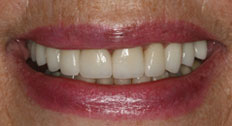Dental Implants 92037

Rejuvenate your smile with Dental Implants
Whether it’s tooth decay, gum disease, or injury, millions of Americans suffer from tooth loss despite improvements in dental care. Before, the only options people with missing teeth had were bridges or dentures. Today, patients can instead use dental implants 92037. Dental implants are tooth root replacements that can be used for either permanent or removable replacement teeth.
Dental implants have advantages over other tooth loss treatments including:
- Improved appearance: Dental implants look and feel like natural teeth because they are designed to fuse directly with bone and become permanent.
- Improved speech: Unlike dentures, dental implants 92037 will never slip in your mouth during speech, allowing people to speak normally without worry of mumbling or slurring of words.
- Improved comfort: Implants become part of you, so replacement teeth will not cause the discomfort that dentures are known for.
- Easier eating: Dentures that slide can make chewing difficult. Implants will act as natural teeth, allowing people to eat without pain.
- Improved self-esteem: Dental implants can return patient's natural smiles and help them feel better about themselves.
- Improved oral health: Unlike bridges, dental implants do not reduce other teeth, which allows for more of a person's own teeth to be left intact, improving their oral health. Individual implants also provide easier access between teeth.
- Durability: Implants may last a lifetime if given proper care.
- Convenience: Dental implants remove the inconvenience of preparing dentures with messy adhesives.
Success rates vary depending on the location of their placement, but generally, dental implants 92037 have a success rate of up to 98%. If a patient has healthy gums, enough bone to hold implants, and a commitment to good oral hygiene, they should be healthy enough to undergo implant surgery. Those who smoke, have diabetes or heart disease, or patients who have had radiation therapy to the head or neck need to be evaluated individually.
Dental implants are usually not covered by dental insurance yet. Patients should discuss their specific needs with their dentist and insurance provider to see if coverage may be possible under their medical plan.
About the Procedure:
To begin the implant process, a patient must receive an individualized treatment plan, which addresses their specific needs, and is prepared by a team of specially trained and experienced oral surgery and restorative dentistry professionals. A tooth root implant is then placed into the bone socket of the missing tooth. The jawbone will heal and grow around the post, securing it into the jaw. After the implant has been fused with the jawbone, a connector post is attached to hold the custom-made replacement tooth, which will match the patient’s natural teeth in color and shape. Patients may instead have attachments placed on the implant to hold removable dentures. Most patients state that the procedure involves less discomfort than a tooth extraction. Dental implants 92037 can be cared for using the same type of care that natural teeth require.
-
Before
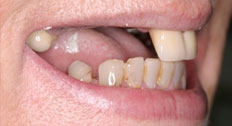 After
After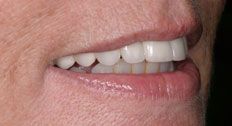
-
Before
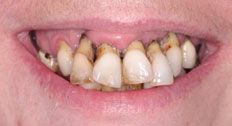 After
After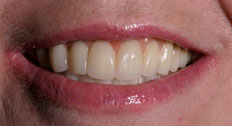
-
Before
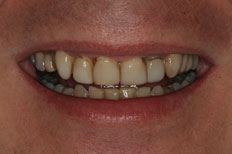 After
After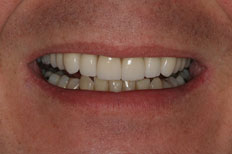
-
Before
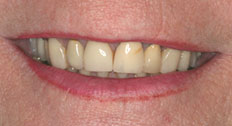 After
After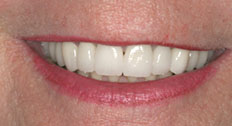
-
Before
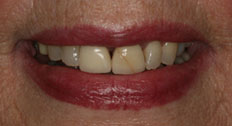 After
After